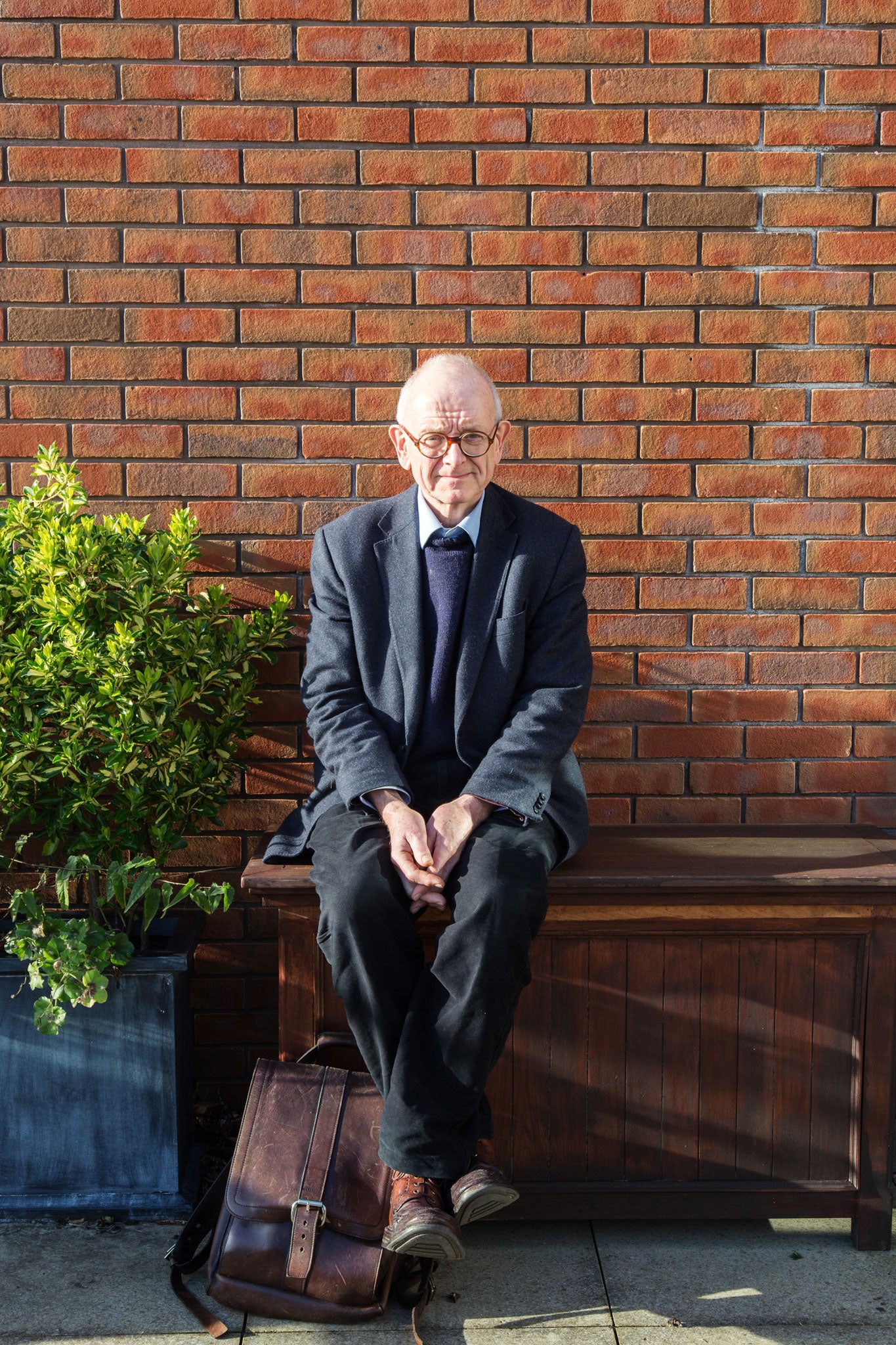Henry Marsh: The neurosurgeon on operations that go wrong, why he hates hospitals - and why he's leaving Britain

Your support helps us to tell the story
From reproductive rights to climate change to Big Tech, The Independent is on the ground when the story is developing. Whether it's investigating the financials of Elon Musk's pro-Trump PAC or producing our latest documentary, 'The A Word', which shines a light on the American women fighting for reproductive rights, we know how important it is to parse out the facts from the messaging.
At such a critical moment in US history, we need reporters on the ground. Your donation allows us to keep sending journalists to speak to both sides of the story.
The Independent is trusted by Americans across the entire political spectrum. And unlike many other quality news outlets, we choose not to lock Americans out of our reporting and analysis with paywalls. We believe quality journalism should be available to everyone, paid for by those who can afford it.
Your support makes all the difference.All doctors have failures; the problem with brain surgery is that failure is often very terrible and very spectacular The very nature of medicine is that things go wrong – and when an operation goes badly, the patient doesn't necessarily die; they can be left horribly disabled, and you have to confront and see that patient often for weeks after on the walk rounds, which is a peculiar torment. Doctors should be honest about the fact that what we do is often very imprecise. It's not a business, it's not a consumer process.
Brain surgery is not very difficult technically But in terms of the human decisions you have to make, it is extraordinarily difficult for both patient and doctor. People think it's all cut and dried, but it's not. It's about balancing risks: the risk of treatment against the risk of no treatment.
It is quite distressing at times that one has to treat the brain as a lump of flesh when in fact it is thought itself and you're dealing with humanity. In some ways, as I get older, I find it more disturbing. Increasingly, I see many older people with cerebral atrophy and Alzheimer's and brain rot, and I think, well, that will be me in 20 years' time.
Some of my patients' deaths still haunt me One of my patients knew there was something wrong with him, and after I told him he was fine, he had a heart attack. I felt so awful, and I still feel haunted by the way he looked at me, knowing something. All doctors deal with this, but they may be better at bottling it up than me.
I hate hospitals They're like prisons and there's a huge lack of insight into what a ghastly environment they are. My greatest achievement in medicine has been having a balcony garden installed outside the neurosurgical wards at St George's. It was very difficult to do, as management said I had to raise £130,000 to make it suicide-proof. It's decorated with garden furniture and trees and shrubs; the patients love it, the staff love it, and it transforms the experience of being in the hospital.
You've achieved most as a doctor if the patient gets on with their life and forgets you I tend to get more gratitude and praise from patients who still need me – they still need to keep me happy, so to speak.
The NHS has management but no leadership One of the main reasons I'm off to work abroad is that I feel like I'm back at school here – I'm treated by senior management as a sort of naughty schoolboy, and I'm just not psychologically suited to working in an environment like that.
I find the nannying attitude in hospitals very annoying I hate the pre-recorded voices in lifts telling me to wash my hands, and the endless bullying posters, telling patients what to do or not to do. We should treat patients as equals.
If I wasn't a surgeon, I'd be an architect I love making things and I do all my own building work, including central heating, plumbing – always have. The reason I went into neurosurgery is that I knew it would involve using both my brain and hands. I make furniture, I keep bees, I read a lot. I have a compulsive need to do things all the time; I'm a bit like a gyroscope: if I'm not spinning constantly, I tend to fall over.
Henry Marsh CBE, 64, is the senior consultant neurosurgeon at the Atkinson Morley Wing at St George's Hospital. He specialises in operating on the brain under local anaesthetic, and has also lectured widely on the subject of hospital architecture. His book, 'Do No Harm: Stories of Life, Death and Brain Surgery', is published by W&N on Thursday, priced £16.99
Join our commenting forum
Join thought-provoking conversations, follow other Independent readers and see their replies
Comments